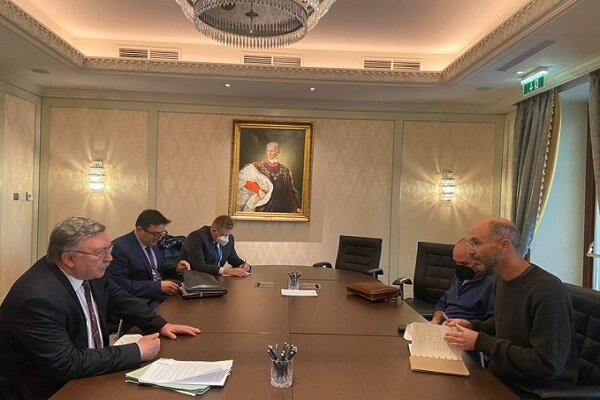On Sunday, a group of more than 250 Iranian lawmakers wrote a letter to the government of Ayatollah Seyed Ebrahim Raisi to warn against a deal with the United States without sufficient guarantees.
The lawmakers called on the government to obtain guarantees from the US and Europe that they won’t quit the 2015 nuclear deal, officially known as the Joint Comprehensive Plan of Action (JCPOA).
The letter was seen by some observers as an unconstructive move at a time when Iran and its negotiating partners in Vienna are coming closer than ever to announcing a deal after months of painstaking negotiations.
But the letter was quite justifiable given the US reluctance to break with the policies that created the current crisis in the first place: the US sticking to sanctions.
Iran has long said that it does not trust the US and it’s not sure that the US will honor its commitments if a deal is reached. This is partly because Washington not only refused to guarantee that it won’t renege on its commitments under a revived JCPOA but refrained from making a solid commitment that it won’t impose new sanctions after reviving the nuclear deal.
Quite on the contrary, the Biden administration is paving the way for more sanctions on Iran after a revival of the JCPOA. A senior US official on the Iran team in the Biden administration has assessed that the White House is still pursuing a “longer” and “stronger” deal with Iran.
The official outlined the steps the US would take to implement what Biden called a “smarter” policy toward Iran the Tehran Times has learned. In September 2020, then-candidate Biden lambasted the Trump administration’s “maximum pressure” policy toward Iran as “empty” and “dangerous failure.”
Biden advocated for a “smarter” policy instead. One whose pillars would be premised on restoring the JCPOA and then using it as a “starting point for follow-on negotiations” which were supposed to result in a “longer and stronger” deal.
But as the Vienna talks faced growing difficulties over the last weeks the “longer and stronger” deal objective faded from public statements issued by the Biden administration but not from the US agenda.
The US official said the Biden administration seeks to keep a set of economic sanctions in place in order to use them as leverage at a later stage to “strengthen and lengthen” the JCPOA and address other forms of Iran’s behavior.
The official made it clear that the US wants to keep the pressure on Iran even after revving the JCPOA, a position that helps explain why Iran remains so doubtful of US proclamations on its readiness to lift sanctions.
The US official laid out a strategy for working within the framework of the JCPOA to address other foreign policy goals that have long been on various US administrations’ agenda – countering Iran’s influence in the region and its military capabilities.
In a sense, the official outlined a “more for more” strategy devised for the period after the revival of the JCPOA. According to this strategy, if Iran wants further relief from pressures, it must make more concessions on issues of interest to the US.
To make things even worse, the official even boasted about the Biden administration’s ability to impose sanctions on Iran for non-nuclear reasons and vowed to keep the ability even after the resuscitation of the JCPOA.
Obviously, this goes against what Iran has been pursuing in the Vienna talks. Iran has said time and again that it needs guarantees from the US that Washington won’t quit the deal nor will it impose new sanctions. But if the US continues to make plans for how to keep Iran under pressure, this would likely discourage Iran from accepting the US return to the JCPOA.
First published in Tehran Times

























Your Comment